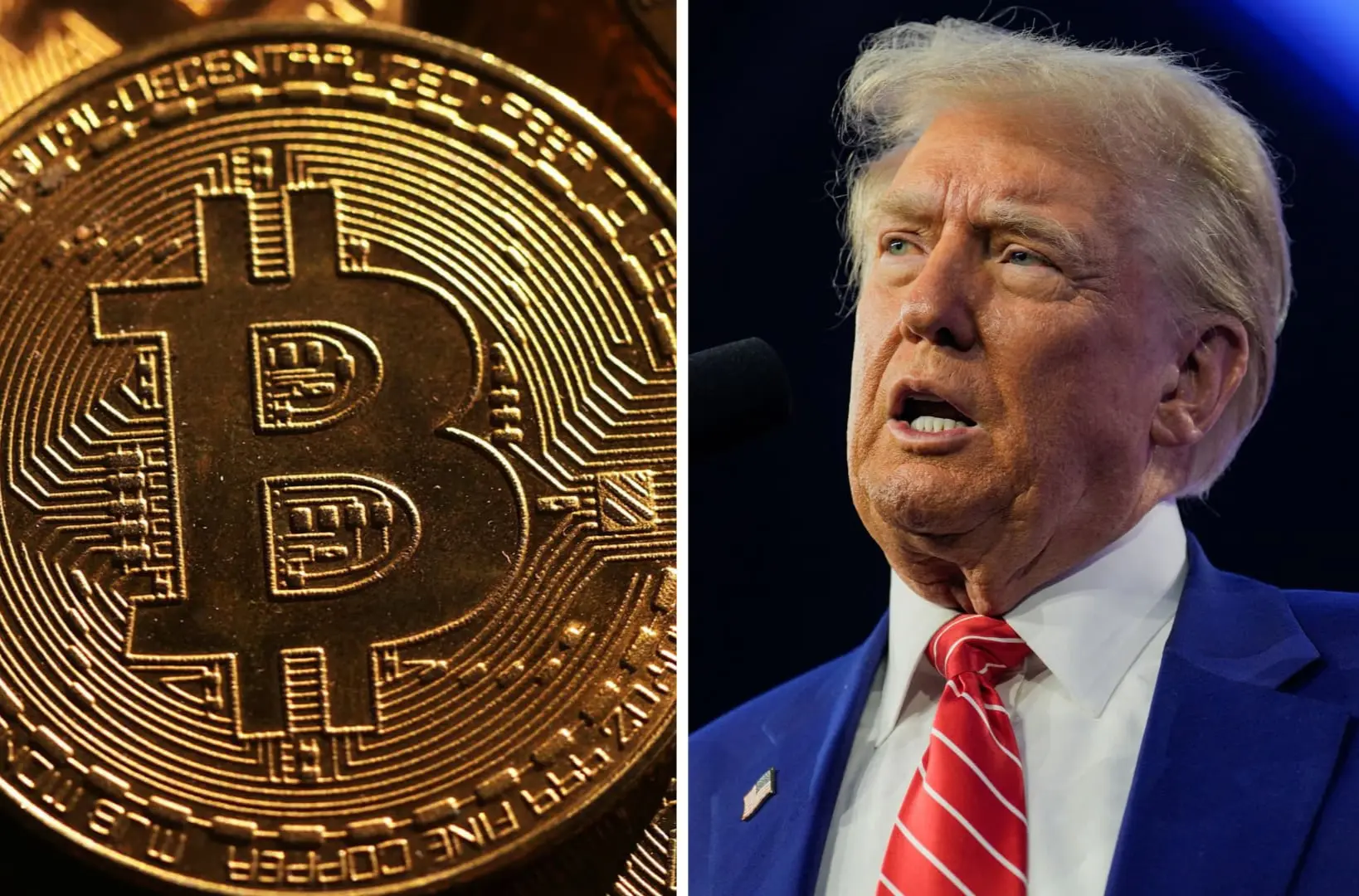The cryptocurrency market thrives on volatility, but recent geopolitical tensions have introduced new layers of uncertainty. On February 2, 2025, Bitcoin (BTC), the world’s largest cryptocurrency, saw a sharp decline, sliding toward the $90,000 mark following a major economic policy shift by former U.S. President Donald Trump. His announcement of sweeping tariffs on imported goods has rattled both traditional and digital asset markets, raising questions about Bitcoin’s resilience amid global economic turmoil.
This article unpacks the reasons behind Bitcoin’s price drop, the broader implications for the crypto market, and what investors can expect in both the short and long term.
The Tariff Announcement: A Global Market Disruptor
On February 1, 2025, Trump revealed a new set of tariffs targeting key trade partners, including China, the European Union, and Southeast Asian nations. Ranging from 10% to 25%, these tariffs aim to protect U.S. industries and reduce trade deficits. However, the move has reignited fears of a trade war, triggering widespread uncertainty across global financial markets.
Immediate Market Reactions:
- Stock Markets: The S&P 500 and NASDAQ suffered sharp declines as investors braced for economic disruptions.
- Commodities: Safe-haven assets like gold saw a surge in demand, while oil prices fluctuated due to concerns about global trade flows.
- Bitcoin’s Initial Surge: Initially, Bitcoin experienced a brief price rally as investors sought refuge in decentralized assets. However, the bullish momentum quickly faded as broader market concerns took hold.
Why Did Bitcoin Slide Toward $90,000?
Trump’s Bitcoin’s decline can be attributed to a combination of economic, psychological, and market-driven factors:
1. Risk-Off Sentiment Dominates
Economic uncertainty typically triggers a “risk-off” approach, where investors move funds from volatile assets to safer options. While Bitcoin is often compared to gold as a hedge, its historical volatility makes it less attractive during turbulent times, leading to increased sell-offs.
2. Liquidity Crunch Hits Crypto
The market-wide sell-off following Trump’s tariff announcement created a liquidity crunch. Investors offloaded Bitcoin to raise cash or cover losses in traditional markets, amplifying downward pressure.
3. Rising Regulatory Concerns
With geopolitical tensions escalating, the possibility of increased government scrutiny on cryptocurrencies looms large. Historically, economic protectionism has coincided with stricter financial regulations, making investors wary of potential policy shifts that could impact Bitcoin.
4. Market Overreaction
Crypto markets are known for sharp price swings in response to major news events. While tariffs are significant, Bitcoin’s rapid drop could reflect an exaggerated reaction rather than a fundamental shift in its long-term value.
Broader Implications for the Crypto Market
The effects of Bitcoin’s decline extend beyond its own price action, influencing the entire cryptocurrency ecosystem:
1. Increased Altcoin Volatility
Bitcoin’s price movement sets the tone for the broader crypto market. As BTC dropped, altcoins saw even steeper losses, with investors shifting to more stable assets.
2. Heightened Regulatory Scrutiny
Governments worldwide are likely to intensify their focus on cryptocurrencies. Potential new regulations could range from stricter reporting requirements to limitations on institutional participation.
3. A Long-Term Buying Opportunity?
For long-term investors, Bitcoin’s dip could represent a strategic buying opportunity. Historically, BTC has rebounded from macroeconomic shock by this trump’s political act, and this downturn may offer a chance to accumulate at lower prices.
4. Institutional Caution vs. Opportunity
While some institutions may rethink their crypto exposure due to increased volatility, others could see this as an entry point to acquire Bitcoin at a discount. Institutional adoption remains a key driver of long-term price stability.
Investor Strategies: Navigating Uncertainty
In uncertain market conditions, a disciplined investment approach is crucial. Here’s how investors can mitigate risks and capitalize on opportunities:
1. Diversify Your Portfolio
Balancing crypto investments with traditional assets like stocks, bonds, and commodities can reduce exposure to volatility.
2. Stay Informed on Macro Trends
Understanding the intersection of global policies and digital assets helps investors anticipate market movements and adjust strategies accordingly.
3. Think Long-Term
Despite short-term fluctuations, Bitcoin’s role as a decentralized, inflation-resistant asset remains strong. Investors should focus on long-term fundamentals rather than reacting to daily price swings.
4. Use Dollar-Cost Averaging (DCA)
Investing a fixed amount at regular intervals helps smooth out price volatility and reduces the risk of making poorly timed, emotion-driven trades.
The Bigger Picture: Tariffs and the Crypto Market
The ongoing trade tensions highlight how macroeconomic policies by Trump’s tariff increasingly influence the cryptocurrency market. While tariffs may initially trigger uncertainty, they could also drive long-term demand for decentralized assets like Bitcoin, particularly if inflationary pressures rise.
As governments navigate economic challenges, crypto investors must remain vigilant, understanding that digital assets are no longer isolated from traditional market forces.
Conclusion
Bitcoin’s sharp drop toward $90,000 following Trump’s tariff announcement underscores the evolving relationship between global economic policies and digital assets. While the short-term outlook remains volatile, Bitcoin’s long-term potential remains intact.
As investors adapt to changing market conditions, strategic decision-making and a focus on fundamentals will be key to navigating the crypto space. The question now is whether Bitcoin will rebound as it has in the past or if new economic forces will reshape its trajectory.
What’s your take on Bitcoin’s response to global events? Share your thoughts in the comments below!
Suggested reads:
- The Ultimate Bitcoin Buying Guide for Beginners
- Bitcoin NFTs: Exploring the Future of Blockchain Collectibles
- Bitcoin Surges After US SEC’s First Crypto Policy Win

Jahanzaib is a Content Contributor at Technado, specializing in cybersecurity. With expertise in identifying vulnerabilities and developing robust solutions, he delivers valuable insights into securing the digital landscape.








